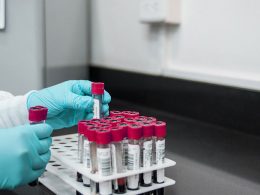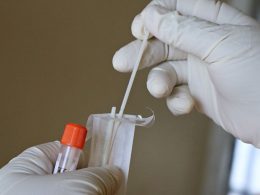Scientists recently discovered a new organ in the throat. The discovery, which happened accidentally, led researchers to a set of salivary glands lying deep in the upper region of the throat.
Prior to the unintentional discovery, scientists once thought that the region of the throat where this discovery was made – the nasopharynx, held nothing but microscopic salivary glands spread all around the area. However, they discovered this new set of glands in this same region of the throat and found it measures 1.5 inches (about 3.9 centimeters) in length.
These new glands were discovered behind a piece of cartilage called the torus tubarius. Therefore, the researchers subsequently named the glands the tubarial salivary glands. It is thought that the glands perform the function of lubricating and moistening the upper throat behind the nose and mouth.
When the scientists made this discovery, they were actually looking for something else. The researchers from the Netherlands Cancer Institute used a combination of CT scans, and positron emission tomography (PET) scans known as PSMA PET-CT to study prostate cancer. The process involves injecting a radioactive tracer into the patient. This tracer will bind to protein PSMA, which are many in prostate cancer cells. This method of diagnosing prostate cancer is a more improved system than the conventional imaging method used in the past.
Fortunately, the PSMA PET-CT scan is also good at recognizing salivary glands. This was how the new glands were discovered – fixed firmly behind the torus tubarius. Up until now, scientists thought that only three salivary glands existed in the throat – the parotid glands (just behind the angle of the jaw), the submandibular glands (under the side of the tongue), and the sublingual glands (under the side of the jaw). Asides from these major glands, there are about a thousand microscopic salivary glands spread throughout the mucosa of the throat and mouth.
Wouter Vogel, a co-author of the study and a radiation oncologist at the Netherlands Cancer Institute, said his team was stunned when they made the discovery since everyone in the medical community believed the throat held the three glands mentioned above alone and nothing else.
To confirm that their discovery was not just a one-off situation, Vogel and his team conducted a scan for 100 other patients and found that they had the same glands. They also dissected a donor cadaver and found the same organ, wherein they concluded that a new organ had been discovered. This new organ consisted mostly of mucosal gland tissue and ducts draining into the nasopharynx.
This discovery holds significant implications for cancer treatment. Hitherto, without adequate knowledge that such an organ existed, scientists did nothing to prevent irradiating the organ, which can cause eating, swallowing, and speaking problems for patients who underwent cancer treatment using radiation.
Now, scientists will be more careful to avoid radiation in that region. This discovery means that cancer patients will no longer have to undergo adverse side effects from their radiation therapy.
Source: dailymail.co.uk









